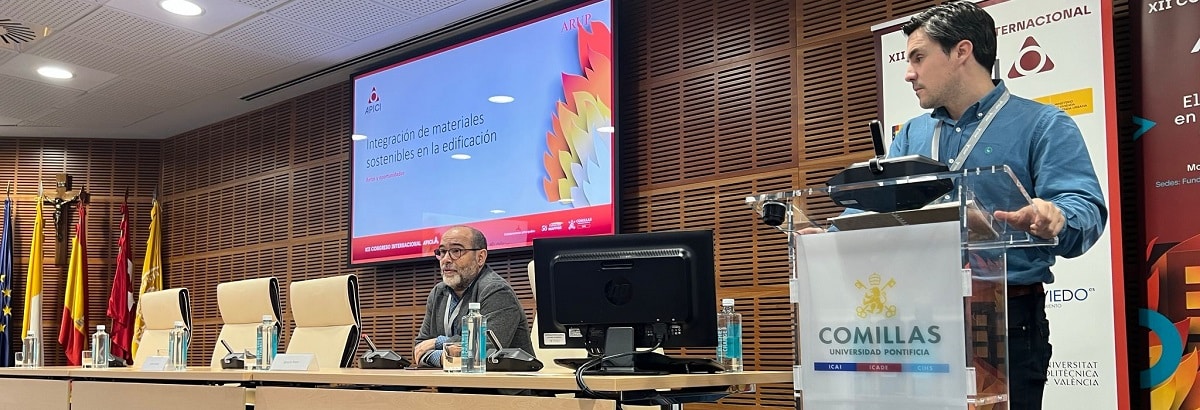13/05/2025
Every two years, this international conference serves as a forum for discussion for all professionals working in fire protection, regardless of their field – research and training, consulting and engineering, supervisory authorities, manufacturers, system installers and maintainers, infrastructure managers, industries and services, the supply chain and the insurance industry.
The theme of the conference was Fire risk in a social and sustainability context.
The workshops began with reflection and self-criticism. Events in recent years such as the Grenfell Tower fire in London have highlighted the need to reinforce the liability that corresponds to professionals and improve training for corresponding technicians.
One of the topics addressed was the protection of vulnerable people. This protection currently extends beyond the purely technical field of professionals and is treated as a social right. The fact that vulnerability spans multiple dimensions, some of which (elderly people, people with different abilities, groups at risk of social exclusion) are more evident than others. None of us are totally exempt from being vulnerable over the years, which is known as progressive vulnerability, which is why awareness, information and training are so important. Without proper information, we cannot address fire safety in a multidimensional context. Training of intervention professionals and users must be a top priority task.
International experiences were shared in reconstructing social, educational and hospital infrastructure in the wake of natural catastrophic events. Considering best international practices for fire protection in reconstruction contributes to improving the resilience of local communities against catastrophic phenomena. The congress concluded that healthy international cooperation works as a major catalyst in this process. It’s imperative to constantly review action plans, as opposed to merely applying obsolete regulations.
Technicians from public administrations shared interesting experiences in the field of managing mass events and in the intervention of firefighters on industrial premises.
Evolving environmental conditions caused by climate change affect the safety of everyone in the event of a fire, with forest fires representing the most obvious danger. Forest fires threaten our buildings, especially homes located close to forests. Risk analysis methodologies to analyze vulnerabilities in this new scenario with a multidisciplinary approach were also shared with participants.
A central theme of the congress was the challenge sustainable policies pose for fire protection, with a lively debate on the “competition” between sustainability and security objectives.
This challenge was addressed over the course of three sessions, one on energy generation and storage, another on the urban built environment and urban-forest border and one on the circular economy.
We’ve seen risks arising from new practices and uses caused by energy transition, new sources of energy generation and storage in buildings, infrastructure and transport. Executing trials and tests to better understand these dangers and the risks they pose is essential in learning how to mitigate them.
The fire risk presented by new sustainable trends in urban and rural environments and the point at which they overlap. The fire risk of lithium-ion batteries in electric vehicles, the growing use of wood in building and the intervention of firefighters in forest fires were analyzed.
Finally, fire safety in the circular economy, with protection proposals for urban waste treatment plants, the treatment of lithium-ion batteries at the end of their useful life and recovery of property damaged by fire and water were discussed and debated. The recycling of construction products, and categorization of their fire resistance benefits, were also the subject of reflection.
Manufacturers and installers presented new developments in the sector, and transport infrastructure managers and representatives of the insurance industry gave their input.
The 12th APICI International Fire Protection Conference proved to be an essential platform for the exchange of knowledge and experience among industry professionals.
The discussions and reflections addressed during the event underlined the importance of prevention and international cooperation. The integration of new methodologies and awareness of emerging risks are crucial steps toward more effective and multidimensional protection.





